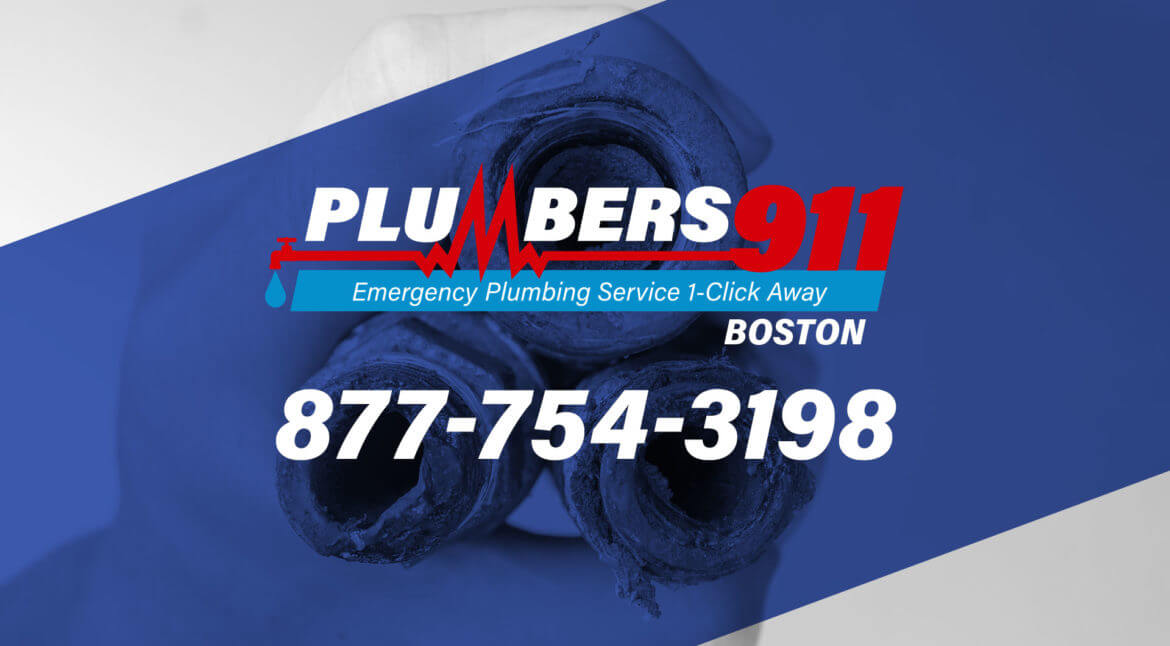Pipe corrosion can occur when the metal in your pipes breaks down and rusts from years of use. It can poison drinking water and cause harmful health effects. If left untreated, rust can break your pipes and require a replacement of your entire plumbing system.
There are several options to repair corroded pipes, depending on the severity of the corrosion and your budget. The faster you respond to the problem, the easier and cheaper it is to fix. Corrosion is not always easy to spot. Working with a professional plumber to identify the problem early is critical.
The contractors associated with Plumbers 911 Boston can inspect your pipes and recommend the best approach to repair them.
Let’s look at what causes corroded pipes and what you can do to help alleviate the problem.
What causes corroded pipes
There are several reasons why your pipes can become corroded.
Corrosion can happen when you have too much alkaline in your water, especially if you have copper plumbing. Acidity is measured by pH level, ranging from zero (most acidic) to fourteen (most alkaline). A pH of seven represents a neutral acidity level. If the water becomes too acidic, it can eat away the protective copper oxide and expose the pipes to a higher risk of rapid corrosion.
Pipes can also become corroded if too much oxygen is in the water. Hard water can also rust out pipes. If you have hard water, you’ll need to hire a plumber like the contractors at Plumbers 911 Boston to install a water softener to protect your plumbing. Using chemical drain cleaners can also cause corroded pipes.
Signs you have corroded pipes
It is best to have a plumber inspect your pipes to diagnose the problem entirely. However, there are a few warning signs to watch out for that can indicate issues with corrosion. Look for any discolored water that is brown, yellow, or rust-colored. You might have corrosion if the water smells or has a bad taste. Poor or worsening water pressure is another sign. Other indications are leaking or burst pipes, fluctuating water temperatures and unusual sounds from the plumbing.
A DIY approach to corroded pipes
Suppose you have mineral and calcium buildup on the surface level of your pipes and not too deep within your piping system. In that case, you could try to fix the problem yourself. Nevertheless, you should hire a professional plumber to inspect your plumbing and diagnose the extent of the damage. Call Plumbers 911 and receive a referral to a licensed contractor who can help you with these problems.
If the buildup is merely surface level, you can reduce the corrosion by pouring a gallon of vinegar down all the drains. The vinegar can help to loosen the corrosion and protect your plumbing.
Hiring a professional plumber to clean your corroded pipes
If your pipes require more than just surface-level descaling, you’ll need to call a licensed plumber like the contractors of Plumbers 911 for a more thorough cleaning.
A professional plumber can clean your pipes with a high-pressure hose to remove rust and other sediments from the plumbing. They can also do a camera inspection to more thoroughly diagnose the problem and ensure all the rust has been removed.
Do you need to replace the plumbing?
In extreme cases of corrosion, you may need to replace your plumbing completely.
You’ll need to hire a licensed plumber who can do a camera inspection on your plumbing. You may get away with replacing only part of your plumbing, depending on the extent of the damage. If the corrosion has gotten bad enough throughout your entire plumbing system, all the plumbing will need replacement.
Need someone to inspect your pipes? Call Plumbers 911 Boston
If you suspect you may have corroded pipes, call Plumbers 911 Boston to find a licensed local contractor who can inspect your pipes and make a professional diagnosis. If necessary, they can do a camera inspection of your entire plumbing system. They will make recommendations and work with your budget to find a solution.


